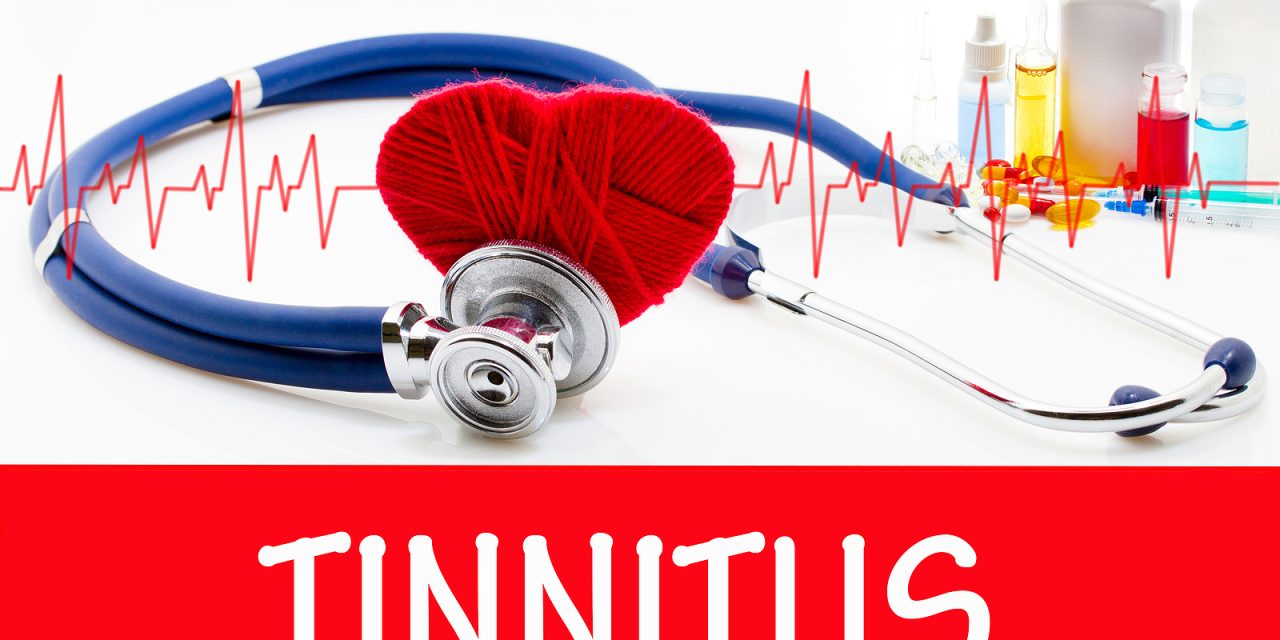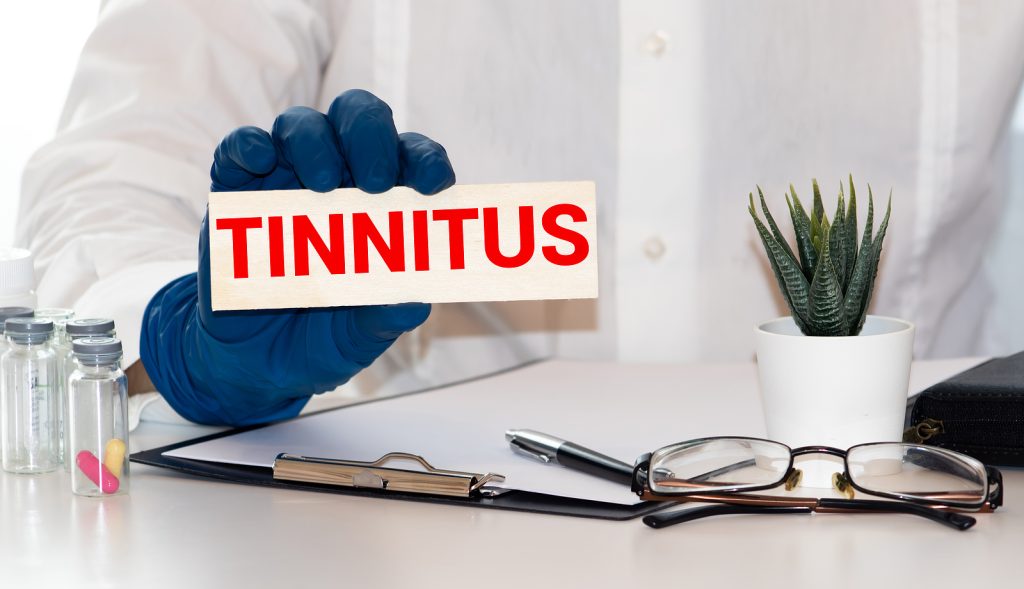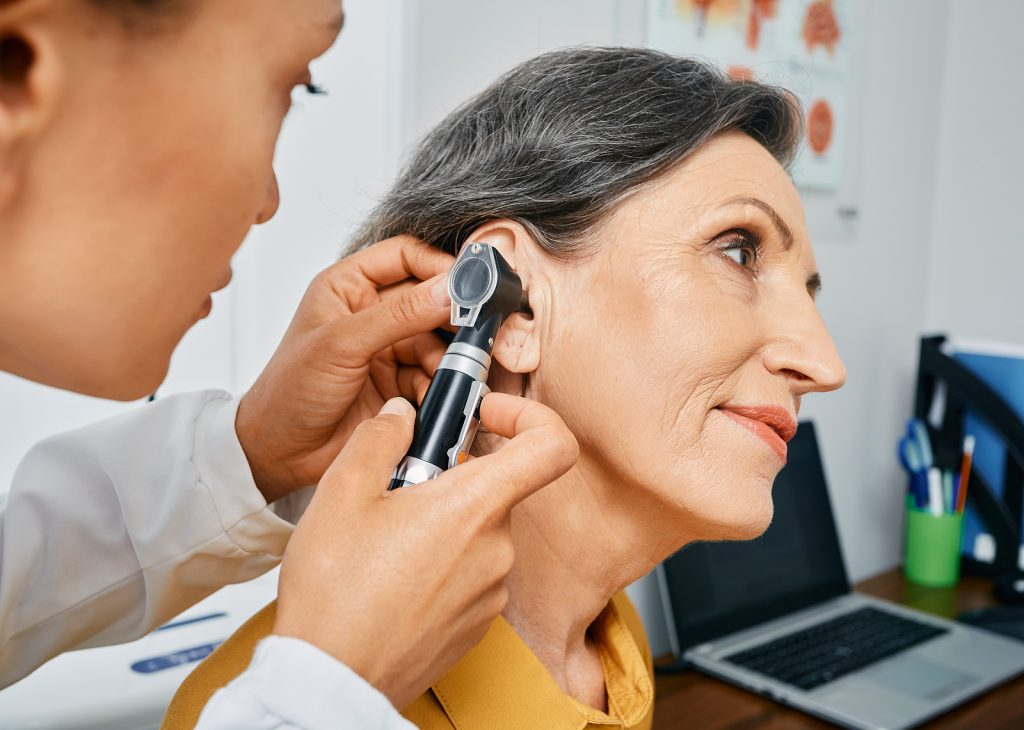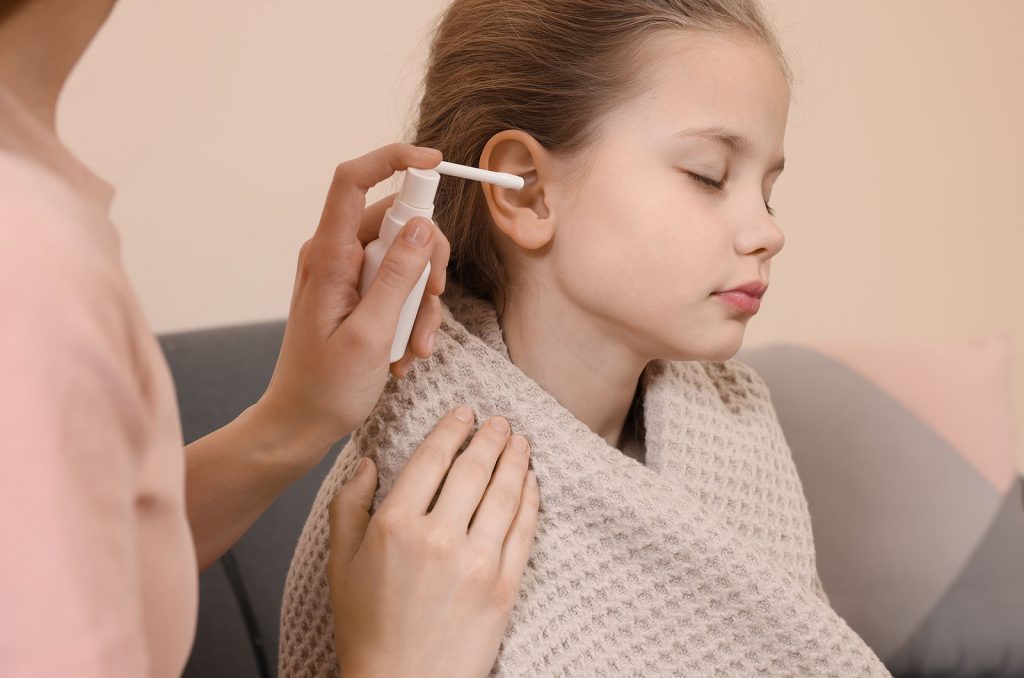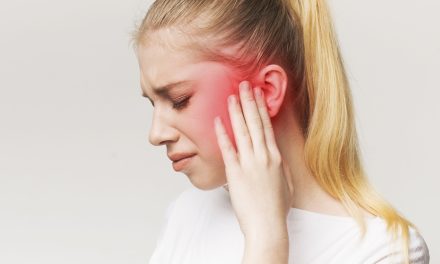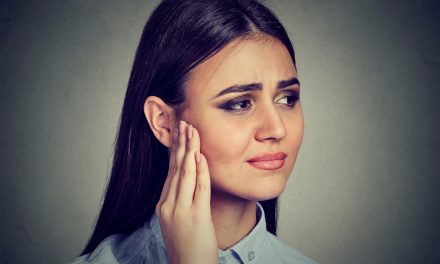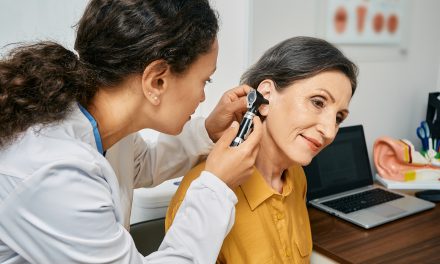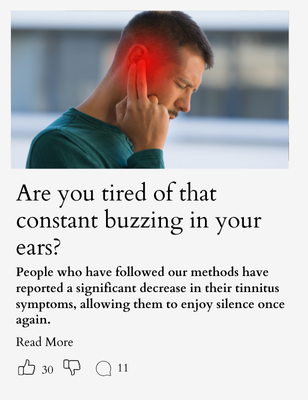Tinnitus is a common condition characterized by persistent ringing, buzzing, hissing, or other noises in the ears, even when no external sound is present. While the exact cause of tinnitus remains unknown, a variety of factors, such as noise-induced hearing loss, ear infections, and emotional stress, may contribute to its development. Although there is currently no definitive cure for tinnitus, several natural remedies and lifestyle changes can help manage the symptoms and provide relief for those affected.
Natural remedies for tinnitus include dietary modifications, herbal supplements, and various mind-body practices. By understanding the potential underlying causes and triggers, individuals can adopt appropriate strategies to mitigate the impact of tinnitus on their daily lives. It is important to note that the effectiveness of these remedies may vary from person to person, and it is essential to consult a healthcare professional before starting any new treatment.
Key Takeaways
- Natural remedies and lifestyle changes can help manage tinnitus symptoms
- Effectiveness of treatments may vary; consult a healthcare professional before starting
- A combination of dietary modifications, supplements, and mind-body practices may offer relief
Understanding Tinnitus
Defining Tinnitus
Tinnitus is a disorder where individuals experience a persistent sensation of hearing noise when there is none. It’s a relatively common problem, affecting approximately 15% to 20% of people. While usually not a severe issue, tinnitus can negatively impact an individual’s quality of life and lead to stress, anxiety, and depression.
Common Causes
Various factors can cause tinnitus, with some of the most common ones being:
- Exposure to loud noise
- Age-related hearing loss
- High blood pressure
- Earwax accumulation
- Certain medications
Moreover, tinnitus can arise due to changes in blood flow or circulation, which might be secondary to other health conditions.
Symptoms and Diagnosis
The primary symptom of tinnitus is the perception of sound when there is no external source. People with tinnitus might experience different types of noises, such as ringing, buzzing, or humming. These sounds can be continuous or intermittent in nature and may vary in pitch and intensity.
Diagnosing tinnitus typically involves a medical examination and an assessment of an individual’s hearing. Healthcare providers may also order additional tests, such as an audiogram or MRI, depending on the suspected cause of the condition.
In conclusion, understanding the nature, common causes, symptoms, and diagnosis process of tinnitus is crucial for those seeking to navigate the labyrinth of information on natural remedies. By doing so, they can make informed decisions on potential treatments that suit their specific needs and circumstances.
The Impact of Diet on Tinnitus
Foods to Include
A well-balanced diet can have a significant impact on the severity of tinnitus symptoms. Including foods rich in essential nutrients like zinc, certain vitamins, and minerals can help maintain healthy auditory functioning. Some examples of nutrient-rich foods to consider for tinnitus prevention and management are:
- Legumes and nuts: Beans and cashews are excellent sources of zinc, which has been linked to improved tinnitus symptoms.
- Fruits and vegetables: These foods contain vitamins A, C, and E, and they are believed to support overall ear health.
- Whole grains: Consuming whole grains like brown rice and quinoa can also provide essential nutrients for auditory well-being.
Including Ginkgo biloba as a dietary supplement has shown some promise in reducing the severity of tinnitus in certain cases. Ginkgo biloba extract contains natural antioxidants and anti-inflammatory properties that may be beneficial in managing tinnitus symptoms.
Foods to Avoid
Certain foods and substances can exacerbate tinnitus symptoms and should be avoided or consumed in moderation. These include:
- Caffeine: Beverages like coffee, cola, and energy drinks can be stimulants that may worsen tinnitus for some individuals.
- Alcohol: Overconsumption of alcoholic beverages can negatively affect blood flow and impair auditory nerve function, leading to worsened tinnitus symptoms.
- Sodium: High salt intake can also contribute to increased tinnitus severity, as it may cause fluid retention and increased blood pressure.
Finally, decreasing the use of tobacco products can significantly help in managing tinnitus, as smoking has been shown to worsen symptoms due to its negative effect on blood flow and stimulation of the nerve cells controlling hearing.
By making mindful food choices and incorporating dietary supplements where beneficial, individuals experiencing tinnitus may be able to improve their symptoms and overall quality of life.
Natural Supplements for Relief
Ginkgo Biloba Extract
Ginkgo biloba, a popular herbal supplement, has been said to provide relief for tinnitus in some cases. It is believed to work by improving blood circulation to the brain and ears, which may help reduce tinnitus symptoms. However, scientific research on its effectiveness is limited, and findings thus far have been mixed. A Cochrane review found that there is not enough evidence to support the use of ginkgo biloba as a standalone treatment for tinnitus or in combination with other treatments like hearing aids.
It is essential to note that ginkgo biloba can interact with certain medications, so always consult your healthcare provider before trying this supplement.
Korean Red Ginseng
Korean red ginseng, a form of the herb Panax ginseng, has been used in traditional Asian medicine for centuries and is thought to improve various health conditions, including tinnitus. While there is some anecdotal evidence supporting its use, research on the effectiveness of Korean red ginseng for tinnitus is sparse.
In a few small studies, participants reported subjective improvements in their tinnitus symptoms after using Korean red ginseng. However, more robust, large-scale studies are needed to determine its effectiveness in treating tinnitus. As with any supplement, make sure to consult with your healthcare provider before trying Korean red ginseng.
Zinc Supplements
Zinc deficiency has been linked to tinnitus in some cases. Consequently, zinc supplements may provide relief for individuals experiencing tinnitus symptoms due to a lack of zinc in their diet. Studies examining the effectiveness of zinc supplementation for tinnitus have produced mixed results. Some research has shown that zinc supplementation can improve tinnitus symptoms, while other studies have not found significant improvements.
It is important to remember that excessive zinc intake can lead to side effects and interactions with medications. If you suspect a zinc deficiency may be contributing to your tinnitus, consult with your healthcare provider before beginning a supplementation regimen. They can help determine if zinc supplementation is appropriate for you and recommend the proper dosage.
Mind and Body Practices
Yoga and Meditation
Yoga and meditation are popular and effective ways to naturally manage tinnitus symptoms. Both practices can help in reducing stress and promoting relaxation, which are essential for alleviating the burden of tinnitus. Practicing yoga regularly helps increase blood circulation, improve muscle and joint flexibility, and promote inner balance. Meditation, particularly mindfulness meditation, helps in focusing one’s attention away from the constant ringing sounds, making it easier to manage day-to-day tasks.
Example Yoga Poses:
- Mountain pose: This pose helps improve posture and reduce neck tension.
- Child’s pose: This pose allows for a deep relaxation of the neck and shoulders.
Acupuncture
Acupuncture is an ancient Chinese medical practice that involves the insertion of thin needles at specific points in the body. It can be helpful in managing tinnitus symptoms by improving blood flow and reducing inflammation, which may contribute to the ringing sensation in the ears. Acupuncture is typically administered by a trained and licensed practitioner, and it’s important to seek treatment from a qualified professional to ensure safety and effectiveness.
Tai Chi and Exercise
Regular physical activity, such as Tai Chi and other low-impact exercises, can provide numerous benefits for tinnitus sufferers. These activities improve blood circulation, reduce stress, and promote overall mental and physical well-being. Tai Chi, in particular, is a gentle form of exercise that helps in focusing the mind and body, making it especially beneficial for those struggling with tinnitus symptoms.
Example Tai Chi Techniques:
- Breathing and postural awareness: Focus on deep, slow breaths and maintain a relaxed posture.
- Slow movements and balance: Integrate fluid, slow movements while maintaining awareness of your body’s position in space.
To achieve the best results, combining multiple mind and body practices like yoga, meditation, acupuncture, and exercise can create a comprehensive natural treatment plan for tinnitus. Remember to consult with your healthcare professional before starting any new treatment or exercise program.
Sound Therapies Explained
White Noise and Masking
White noise is a type of sound therapy that can help relieve tinnitus symptoms by providing a constant background noise, which helps to mask the irritating ringing or buzzing sounds associated with tinnitus. There are various devices available to create white noise, such as sound-masking devices and hearing aids with built-in white noise generators. These devices provide pleasant external noises that can help drown out the internal sounds of tinnitus, making them a popular choice for those seeking relief from their symptoms.
Tinnitus Retraining Therapy
Tinnitus Retraining Therapy (TRT) is a more comprehensive sound therapy that aims to retrain the brain’s perception of tinnitus sounds. It incorporates a combination of directive counseling and sound therapy to help the individual learn to ignore the sounds of tinnitus. TRT relies on the concept of habituation, a process where the brain reclassifies the unwanted sounds as neutral or unimportant. This therapy has proven effective in reducing the distress and annoyance caused by tinnitus.
Customized Sound Therapy
Customized sound therapy is a personalized approach to alleviating tinnitus symptoms by utilizing tailored sound effects to match the specific pitch and volume of an individual’s tinnitus. This method can involve using audiologist-adjusted hearing aids, or non-invasive, external devices for bimodal therapy, which combine sound and touch stimuli to retrain the brain’s perception of sound. Customized sound therapy allows for a more targeted approach to mask the tinnitus sounds and has shown promising results in helping individuals manage their symptoms.
To determine the most appropriate sound therapy for an individual, it’s crucial to consult a hearing healthcare professional. They can thoroughly assess a person’s tinnitus symptoms and hearing abilities, and recommend the treatment option that best addresses the specific needs of the individual.
Psychological Approaches
Cognitive Behavioral Therapy
Cognitive Behavioral Therapy (CBT) can be an effective way to address tinnitus distress as well as accompanying anxiety, depression, or insomnia. CBT is a short-term, evidence-based therapy that teaches individuals how to identify and change negative thought patterns in order to cope with tinnitus better. It has been found to improve the overall quality of life for those suffering from tinnitus.
Some techniques used in CBT include:
- Cognitive restructuring: The process of replacing exaggerated, negative thoughts with more objective, rational ones.
- Relaxation techniques: Such as deep breathing, progressive muscle relaxation, and meditation to help manage stress and anxiety.
Stress Management Techniques
Tinnitus can be exacerbated by stress, which is why it’s essential to develop effective stress management techniques. Some popular methods include:
- Mindfulness meditation: A type of meditation that focuses on being fully present in the moment, helps to increase self-awareness and decrease negative reactions to distressing thoughts.
- Yoga: Combines physical postures, breathing techniques, and meditation to promote relaxation and reduce stress levels.
- Progressive muscle relaxation: A process of sequentially tensing and releasing muscle groups, which helps to promote a state of relaxation.
Progressive Tinnitus Management
Progressive Tinnitus Management (PTM) is an evidence-based approach that incorporates education, counseling, and individualized self-help techniques to manage tinnitus. PTM has five steps:
- Screening: Identify individuals with problematic tinnitus.
- Audiologic Evaluation: Assess hearing levels and determine the need for hearing aids or other interventions.
- Group Education: Provide information on tinnitus and its management.
- Interdisciplinary Evaluation: Address psychological, emotional, and functional aspects of tinnitus.
- Individualized Management: Create a personalized plan to help manage tinnitus using techniques such as sound therapy, cognitive restructuring, and relaxation exercises.
Implementing these psychological approaches can provide valuable support to individuals with tinnitus by empowering them with the knowledge and tools needed to better manage their symptoms.
Strategies for Better Sleep
Creating a Relaxing Environment
A key element in overcoming tinnitus-induced sleep issues is to create a relaxing environment in your bedroom. Ensure your surroundings promote peace and sleep by keeping the room dark, calm, and quiet. Minimizing noise levels can help you focus on relaxation, making it easier to fall asleep.
Since quiet environments may make tinnitus more noticeable for some, you can consider using a sound masking strategy to drown out the ringing in your ears. Options include a white noise machine, a fan, or soft background music.
Sleep Hygiene Tips
Maintaining good sleep hygiene is essential for those suffering from tinnitus. Implement the following sleep hygiene tips for a better night’s sleep:
- Consistent sleep schedule: Go to bed and wake up at the same time every day, even on weekends. This helps regulate your body’s internal clock.
- Relaxation techniques: Practice relaxation exercises such as deep breathing, meditation, or progressive muscle relaxation before bed to alleviate stress and calm your mind.
- Limit screen time: Reduce exposure to electronic screens an hour before bedtime, as the blue light emitted from devices may interfere with sleep.
- Establish a bedtime routine: Create a consistent pre-sleep routine, which may include reading a book, taking a warm bath, or practicing relaxation exercises to signal to your body that it’s time to wind down.
Further, managing stress levels during the day can significantly improve sleep quality and is crucial for individuals living with tinnitus because stress and anxiety can worsen tinnitus symptoms.
Implement these strategies to create a relaxing environment and maintain proper sleep hygiene, leading to better sleep quality and potentially mitigating your tinnitus symptoms.
When to See a Doctor
Recognizing Severe Cases
Tinnitus is when you experience ringing or buzzing in your ears even when there is no external sound source. While it may be a temporary and mild issue for some, it can severely affect others’ quality of life. It is necessary to recognize when tinnitus becomes severe and requires medical attention. Some indicators of an extreme case include:
- Persistent symptoms: If the ringing or buzzing in your ears consistently lasts more than a week, it is time to consult a doctor.
- Increasing intensity: If your tinnitus worsens over time, it may indicate a more serious underlying issue.
- Unilateral tinnitus: If you suddenly experience tinnitus in only one ear, it may indicate an underlying health concern that needs immediate attention.
- Associated symptoms: If you experience other symptoms alongside tinnitus, such as dizziness, vertigo, or hearing loss, it is essential to visit a doctor.
Planning Your Doctor Visit
When you decide to see a doctor for your tinnitus, it is essential to adequately prepare for your visit to make the most of your appointment. Take the following steps:
- Note key details: Record the onset, frequency, and intensity of your tinnitus symptoms. Note any potential triggers and any attempted self-treatments or remedies.
- List your medications: List all medications and supplements you are taking. Some drugs can cause or worsen tinnitus.
- Prepare questions: Jot down any questions or concerns you have about your tinnitus. This can help you have a productive conversation with your doctor.
During your appointment, be open with your doctor regarding your symptoms, any related concerns, and the impact of tinnitus on your daily life. This information can help your doctor determine the severity of your tinnitus and the most effective course of treatment. Remember that seeking medical advice is essential when experiencing severe or persistent tinnitus symptoms, as your doctor can help you address the underlying issue and recommend appropriate treatments.
Safety Considerations and Risks
When seeking natural remedies for tinnitus, it is essential to consider safety and potential risks. This section will explore a few key areas to ensure your treatment is as safe and effective as possible.
Avoiding Harmful Practices
Avoiding practices that may worsen tinnitus or cause other health issues is crucial. For example, excessive noise exposure and smoking can exacerbate the condition. Additionally, certain medications, such as aspirin, some antidepressants, and high doses of diuretics, may contribute to tinnitus. It’s essential to consult with a healthcare professional before altering any medication regimen or starting a new treatment.
- Avoid excessive noise exposure.
- Refrain from smoking
- Consult a healthcare professional before altering medication
Understanding Side Effects
While natural remedies can offer relief from tinnitus without medications, it is essential to understand potential side effects. For instance, herbal supplements like Ginkgo biloba and Zinc have been suggested as treatments for tinnitus. However, they may cause adverse reactions in some individuals, such as gastrointestinal issues, allergic reactions, or interactions with other medications.
Moreover, alternative treatments like acupuncture and meditation are generally considered safe but may not be effective for everyone. Ensure that your chosen remedy is delivered by a qualified practitioner, and discuss any concerns you may have with your healthcare provider.
- Be aware of potential side effects with herbal supplements
- Consult with a qualified practitioner for alternative treatments
- Seek guidance from a healthcare provider
In summary, it is essential to approach tinnitus treatment with safety in mind. By understanding the potential risks and side effects, you can make informed decisions about which natural remedies best suit your unique needs. Always consult a healthcare professional before starting any treatment to ensure safe and effective progress toward managing tinnitus.
Emerging Research and Future Treatments
Innovations in Treatment
Emerging research has led to some promising innovations in the treatment of tinnitus. For example, Gingko biloba has been explored due to its potential to alleviate tinnitus symptoms. Additionally, several natural remedies like herbal supplements, yoga, acupuncture, and meditation have been considered alternative treatments for tinnitus.
Individuals experiencing hearing loss or tinnitus may also benefit from hearing aids and cochlear implants. These devices can help improve hearing and potentially reduce tinnitus symptoms.
Ongoing Studies
Ongoing clinical trials are consistently evaluating new treatment approaches for tinnitus. One recent study suggests a new treatment that may relieve people with tinnitus. Another exciting development is a mobile-phone-based therapy that has shown encouraging results in a clinical trial conducted at the University of Auckland.
Here is a brief overview of some critical areas of research:
- Drug therapies: Aiming to find new drugs that can effectively treat tinnitus.
- Neurostimulation treatments: Exploring different forms of neural stimulation, such as transcranial magnetic stimulation, to target the brain regions associated with tinnitus.
- Sound therapy: Investigating how specific sounds and frequencies can alleviate tinnitus symptoms.
Overall, the field of tinnitus research and treatment is rapidly evolving, and ongoing studies have the potential to improve the lives of those affected by this condition significantly. As more clinical trials are conducted, and new findings emerge, the availability of effective treatment options for tinnitus will continue to expand.
Living with Tinnitus
Lifestyle Adjustments
Tinnitus can have a significant impact on a person’s quality of life. However, several lifestyle changes can help individuals manage their symptoms and improve their daily experience. One lifestyle adjustment that might be beneficial is the use of hearing aids. These devices can provide relief by amplifying external sounds, making the internal noise of tinnitus less noticeable.
Another important factor is managing stress levels, as stress can exacerbate tinnitus. Adopting relaxation techniques like deep breathing, meditation, and yoga can help reduce stress and alleviate tinnitus symptoms. Furthermore, limiting the intake of certain substances like caffeine, alcohol, and salt can have positive effects, as these can aggravate tinnitus in some individuals.
It is also essential for individuals to reduce exposure to loud noises, as noise-induced hearing loss can worsen tinnitus. Wearing earplugs or noise-canceling headphones can protect the ears and avoid further damage. In some cases, sound-masking devices might be beneficial in providing a soothing external noise to help mask the internal sound of tinnitus.
Support and Resources
Living with tinnitus can be challenging, but individuals seeking support can turn to various resources for assistance. Joining support groups can help individuals connect with others facing similar challenges. Sharing experiences and coping strategies encourages and enables individuals to feel less isolated.
In addition to support groups, consulting with healthcare professionals such as audiologists or ENT specialists is essential when dealing with tinnitus. These experts can provide valuable guidance on managing symptoms and exploring available treatment options.
Frequently Asked Questions
What naturally occurring substances are scientifically proven to alleviate tinnitus symptoms?
While few scientifically proven natural remedies for tinnitus, Ginkgo biloba, and zinc supplements have been widely discussed and researched. Ginkgo biloba is believed to improve blood flow to the inner ear, while zinc supplements are thought to help correct deficiencies that may contribute to tinnitus symptoms.
Can regular massage therapy offer relief from tinnitus, and if so, how?
Regular massage therapy may provide some relief for tinnitus symptoms by addressing muscle tension, improving blood circulation, and promoting relaxation. While it may not directly cure tinnitus, it can potentially help to manage the stress and anxiety associated with the condition, in turn, making the symptoms more tolerable.
Are there any effective homeopathic treatments for managing tinnitus?
Research on homeopathic treatments for tinnitus is limited, and the overall effectiveness of these treatments remains inconclusive. However, some individuals with tinnitus may find relief through acupuncture, which is believed to offer comfort by targeting pressure points that help balance the body’s energies and reduce symptoms. It is essential to consult with a healthcare professional before attempting any homeopathic treatments for tinnitus.
Which vitamins and minerals should be supplemented to reduce tinnitus caused by deficiencies?
A deficiency in specific vitamins and minerals may contribute to tinnitus symptoms. In particular, supplementation of zinc and B vitamins may help to reduce the intensity of symptoms for some individuals. It is advisable to consult a doctor to determine the appropriate dosages and to ensure there are no contraindications with other medications or medical conditions.
Are there natural ear drops or oils that can help in reducing the intensity of tinnitus?
Notably, no ear drops or oils have been conclusively proven to alleviate tinnitus symptoms. However, some individuals may find temporary relief from tinnitus symptoms by using over-the-counter earwax removal drops, as a buildup of earwax can potentially exacerbate symptoms. Always consult a healthcare professional before using any ear drops or oils to treat tinnitus.
Has research identified any herbal teas that may contribute to tinnitus relief?
Currently, there is no conclusive evidence to support the effectiveness of herbal teas in alleviating tinnitus symptoms. It is worth noting that some herbal teas, such as chamomile and valerian root, may help promote relaxation and reduce stress, indirectly making tinnitus more bearable. It is essential to consult with a healthcare professional before using herbal teas or other natural remedies as a treatment for tinnitus.

